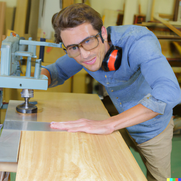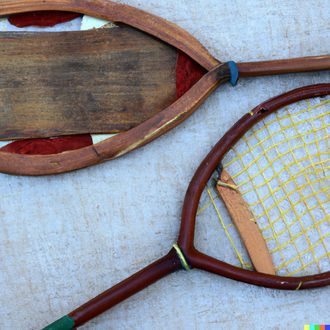 Woodworking is a craft that transcends boundaries, including those of sexual orientation. Gay woodworkers, like any other woodworkers, bring their unique skills, creativity, and perspectives to the woodworking community. As with any diverse group of individuals, the presence of gay woodworkers enriches the field and contributes to its growth and innovation. In recent years, the woodworking community has become more inclusive, welcoming individuals of different backgrounds, genders, and sexual orientations. This inclusivity is essential for fostering a positive and supportive environment where all woodworkers can thrive, share ideas, and collaborate. Social media platforms, such as Instagram, Pinterest, and YouTube, as well as online forums and blogs, have made it easier for woodworkers, including gay individuals, to connect with others, showcase their work, and learn from one another. These platforms provide a space for gay woodworkers to express themselves, gain inspiration, and build supportive networks with like-minded individuals. As the woodworking community continues to grow and embrace diversity, it is important to recognize and celebrate the contributions of woodworkers from all backgrounds, including gay woodworkers. This increased representation and inclusivity not only enriches the woodworking world but also encourages others to pursue their passions and interests, regardless of their sexual orientation.
0 Comments
 Woodworking and church salvage intersect in various ways, particularly in the reclaiming of wood and other materials from old or decommissioned religious buildings. The Little Wizard and Lumber Wizard metal detectors are helpful tools in ensuring that reclaimed wood from church salvage projects is free of hidden metal objects that could damage woodworking tools or pose safety risks.
In summary, woodworking and church salvage have a rich history, and the process of reclaiming materials from religious buildings offers unique opportunities for repurposing valuable resources. Using tools like the Little Wizard and Lumber Wizard metal detectors can help woodworkers create safe and beautiful projects while preserving their tools and maintaining a safe working environment.  Woodworking and bank salvage intersect in various ways, particularly in the reclaiming of wood and other materials from old or decommissioned bank buildings. The Little Wizard and Lumber Wizard metal detectors are helpful tools in ensuring that reclaimed wood from bank salvage projects is free of hidden metal objects that could damage woodworking tools or pose safety risks.
In summary, woodworking and bank salvage have a rich history, and the process of reclaiming materials from bank buildings offers unique opportunities for repurposing valuable resources. Using tools like the Little Wizard and Lumber Wizard metal detectors can help woodworkers create safe and beautiful projects while preserving their tools and maintaining a safe working environment.  Woodworking and church pew making have a long history, with skilled woodworkers crafting beautiful and functional seating for places of worship. The process of salvaging and reclaiming wood from old church pews presents an opportunity to repurpose the material for various woodworking projects. The Little Wizard and Lumber Wizard metal detectors are helpful tools in ensuring that reclaimed wood from church pews is free of hidden metal objects that could damage woodworking tools or pose safety risks.
In summary, woodworking and church pew making have a rich history, and the salvage and reclaiming of church pews offer unique opportunities for repurposing this valuable material. Using tools like the Little Wizard and Lumber Wizard metal detectors can help woodworkers create safe and beautiful projects while preserving their tools and maintaining a safe working environment.  Woodworking and surfboarding intersect in various ways, particularly in the early history of surfboards and the creation of wooden surfboards. The Little Wizard and Lumber Wizard metal detectors are helpful tools in ensuring that wood used for making surfboards is free of hidden metal objects that could damage woodworking tools or pose safety risks.
In summary, woodworking has played a significant role in the history of surfboarding, particularly in the crafting of wooden surfboards. Using tools like the Little Wizard and Lumber Wizard metal detectors can help woodworkers create safe and durable surfboards while preserving their tools and maintaining a safe working environment.  Woodworking and snowboarding intersect in various ways, particularly in the early history of snowboards and the creation of wooden snowboards. The Little Wizard and Lumber Wizard metal detectors are helpful tools in ensuring that wood used for making snowboards is free of hidden metal objects that could damage woodworking tools or pose safety risks.
In summary, woodworking has played a significant role in the history of snowboarding, particularly in the crafting of wooden snowboards. Using tools like the Little Wizard and Lumber Wizard metal detectors can help woodworkers create safe and durable snowboards while preserving their tools and maintaining a safe working environment.  Woodworking and racquetball intersect mainly in the development and production of racquets used in the sport. Racquetball, a sport that originated in the mid-20th century, has always been connected to woodworking through the early design and manufacturing of racquets.
In conclusion, woodworking has a historical connection to racquetball through the early design and manufacturing of wooden racquets. Although modern materials have largely replaced wood in racquet production, woodworking skills can still be applied to create racquetball-themed accessories and decorative items.  The Little Wizard II is a precision handheld metal detector designed specifically for woodworkers. It is perfect for scanning recycled wood for screws and nails before planing, routing, sanding, or sawing, and for other forms of metal detection. The device accurately indicates metal buried inside recycled wood by emitting a high-pitched beep tone and illuminating an array of LEDs. The Little Wizard II can pinpoint the exact location of metal, saving woodworking blades and knives and preventing damage to tools and equipment. The device's small size and unique detection strength allow it to quickly detect damaging nails, screws, and other dangerous metal buried inside of wood. The Little Wizard II has adjustable sensitivity that makes pinpointing easy and accurate. The device precisely indicates metal by emitting a high-pitched beep tone and illuminating an array of LEDs. The Little Wizard II is widely used by woodworkers everywhere, and it requires a new 9-volt battery with at least 8.6 volts for best detection. The device works best with Duracell batteries (not lithium batteries), and it is important to use a new battery with full strength to ensure accurate metal detection. The Little Wizard II is a real-life metal detector that requires proper tuning and understanding of how to use it properly. Reading and understanding the directions is essential to ensure the device is used correctly. Like any specialized tool this detector requires proper tuning and understanding of how to properly use. It's a Wizard but it is not magic!!! It's a real life metal detector that works very well when used as suggested. So please read and understand the directions. We are here 100% if you need. For Best Detection Requires NEW 9 volt battery with at least 8.6 volts. We suggest Duracell (not lithium batteries). Please do not just grab a battery out of your drawer and flop in. Save yourself time and detect metal with a brand new shiny full strength Duracell (non lithium) battery. A fresh battery is your best friend in metal detection!!! Woodworking tools are essential for both professional woodworkers and hobbyists. There are numerous retailers across the United States that specialize in woodworking tools, equipment, and supplies. Some of the well-known national chains and online retailers include:
Little Wizard and Lumber Wizard are produced by Wizard Industries. You can purchase these metal detectors through various woodworking tool retailers, both online and in-store. Some of the retailers that may carry these products include Woodcraft, Rockler Woodworking and Hardware, and Amazon. Be sure to check their websites or contact the stores directly to confirm the availability of these metal detectors. Woodworking tools are essential for both professional woodworkers and hobbyists. There are numerous retailers across the United States that specialize in woodworking tools, equipment, and supplies. Some of the well-known national chains and online retailers include:
Little Wizard and Lumber Wizard are produced by Wizard Industries. You can purchase these metal detectors through various woodworking tool retailers, both online and in-store. Some of the retailers that may carry these products include Woodcraft, Rockler Woodworking and Hardware, and Amazon. Be sure to check their websites or contact the stores directly to confirm the availability of these metal detectors. |
ScribesWritten by ChatGPT with guidance from Billy Carmen. Past Blog Posts
June 2023
This website uses marketing and tracking technologies. Opting out of this will opt you out of all cookies, except for those needed to run the website. Note that some products may not work as well without tracking cookies. Opt Out of Cookies |

